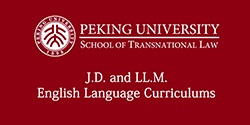
The difference between LL.B, LL.M. and J.D.
Many people get confused when they hear the words: LL.B, LL.M and JD. This article will explain the difference between all of them.
LL.B. is an abbreviation of ‘Legum Baccalaureus’ which means that person holds Bachelor of Laws degree in the United Kingdom and other common law countries like Australia etc. LL.B. is usually the title after the name of a solicitor in the United Kingdom.
In the UK, LL.B. takes three to four years, with the possibility of completing it in two years in an accelerated program. In most other universities around the globe, the LL.B. degree takes four years full-time. It is an academic course which is meant to give students a general introduction to the law. It is designed to equip the students with the basic skills and knowledge to become lawyers. After graduating, the students must undertake further training in order to qualify as lawyers. Trainee solicitors are required to complete the Legal Practice Course (LPC) and then a training contract at a law firm.
Many people pursue LL.B. with no intention of qualifying as lawyers, but take the course as a vehicle to pursue other careers in other fields such as economics, politics or international affairs. This is because LL.B. provides a general academic legal education. It is not mandatory to pursue LL.B. in order to qualify as a lawyer in the UK. Many lawyers study other subjects at the undergraduate level and then pursue Graduate Diploma in Law (GDL) which is a one-year full-time or two to four-year part-time or distance learning conversion test. On successful completion, the GDL confers upon the students a diploma which is equivalent to a law degree.
On the other hand, LL.M. is the abbreviation of the Latin words ‘Legum Magister’ which means Masters of Laws. LL.M. is a postgraduate degree pursued by students and professionals who wish to gain additional expertise in a specialized field of law such as arbitration, human rights, corporate, commercial or tax law. Students are thoroughly taught about the legal concepts and the operative principles in the area of specialization chosen. This degree can be pursued after the completion of LL.B. in the UK or J.D. in the US. This degree is internationally recognized and is quite popular, as it provides an advantage in the highly competitive job market. Some universities in the UK like London School of Economics and Brunel University London offer full-time and part-time programmes. The full-time programme takes one year while the part-time programme takes two years.
Finally, J.D. is the abbreviation of the Juris Doctor degree. It is also referred to as the Doctor of Jurisprudence Degree (D.Jur. or DJur). It has its origin in the Unites States and it is a requirement for anyone aspiring to practice law there. It is considered as the first professional graduate degree in law. In other jurisdictions, like Canada, the degree has totally replaced the LL.B.
The degree is offered by the law schools approved by the American Bar Association (ABA) in the US. The minimum requirement for admission in a law school to pursue J.D. is a bachelor’s degree. The full-time J.D. program generally takes three years. The graduates from the law schools approved by the ABA qualify to sit for the bar exam in any state and if they pass, they are licensed to practice law. In other countries with J.D. programmes, like Canada, the graduates receive further practical training before they are awarded the practicing certificate.










